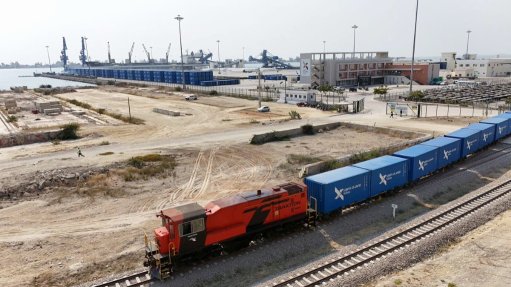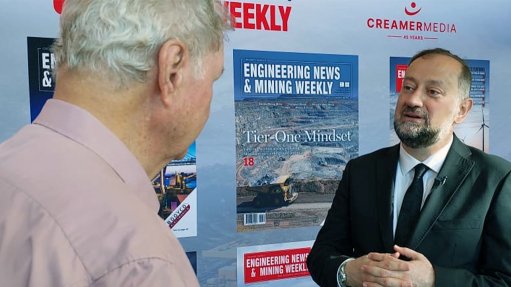Our quiet-quitting leaders
Quiet quitting refers to the practice whereby employees strictly stick to what is in their job description and, once they are away from the office, leave work behind them and focus exclusively on nonwork activities, even if there are reasons to sacrifice some of their free time for the sake of the organisation they work for.
According to a 2021 Gallup survey, a staggering 74% of American workers engage in quiet quitting and many remain in their positions to collect a steady pay cheque and keep health insurance and other benefits. Needless to say, such employees do not stand out at all.
While the quiet-quitter tag is mostly mentioned in conversations about the workplace, it is equally applicable to most of the current crop of African leaders; there is nothing outstanding about their performance and it’s difficult to not conclude they seek high office for the perks that come with it – the fat salary, the prestige, the power. For the corrupt ones, being the Number One citizen also provides an opportunity to line their pockets using State money.
But is it fair comment to characterise current and recent African leaders as quiet quitters? I think so, and the Mo Ibrahim Foundation appears to share my view. Founded in 2006 by its Sudanese-born telecoms billionaire namesake, the foundation strives to promote good governance and leadership in Africa in order to improve the quality of life of the continent’s citizens. Besides other means, it does this through awarding the Ibrahim Prize for Achievement in African Leadership to a recently retired executive head of State or government who assumed office through democratic means and demonstrated exceptional leadership qualities.
Nelson Mandela was an honorary laureate at the award’s inception in 2006, and subsequent winners were Mozambique’s Joaquim Chissano in 2007, Botswana’s Festus Mogae in 2008, Cabo Verde’s Pedro Pires in 2011, Namibia’s Hifikepunye Pohamba in 2014, Liberia’s Ellen Johnson Sirleaf in 2017 and Niger’s Mahamadou Issoufou in 2020.
Thus, over 16 years, only seven awards were made out of a possible 16, despite scores of executive heads of State and government having left office during this period. The retirees who did not make the grade include Thabo Mbeki. However, given his sound management of the South African economy, which grew by an average of 4.1% during his nine-year tenure, as well as the leading role he played in repurposing the old Organisation of African Unity into the more efficient African Union and in conflict resolution in Africa, it would be unfair to brand Mbeki as a quiet quitter. He was most likely snubbed because of his outlandish policies on HIV/Aids, which, according to modelling by experts from Harvard University, unnecessarily consigned 300 000 South Africans to the grave.
When Abiy Ahmed assumed the reins in Ethiopia in 2018, the world believed he would buck the trend of poor leadership on the continent. The Nobel Committee rushed to bestow on him the Nobel Peace Prize that year. As became apparent subsequently, the guy fooled all of us – he is a warmonger.
Companies have found a way of dealing with quiet-quitting employees – what is now referred to as quiet firing. This entails practices such as not engaging employees, or leaving them out of the loop, so that they leave on their own out of frustration, thus avoiding having to dismiss them and being dragged to the Commission for Conciliation, Mediation and Arbitration. But what recourse do citizens have when they are saddled with a quiet-quitting President? Very little, it seems. This is borne out by the fact that the many retired leaders who were deemed unworthy of the Mo Ibrahim accolade did serve for the maximum number of constitutionally permissible terms.
Article Enquiry
Email Article
Save Article
Feedback
To advertise email advertising@creamermedia.co.za or click here
Comments
Press Office
Announcements
What's On
Subscribe to improve your user experience...
Option 1 (equivalent of R125 a month):
Receive a weekly copy of Creamer Media's Engineering News & Mining Weekly magazine
(print copy for those in South Africa and e-magazine for those outside of South Africa)
Receive daily email newsletters
Access to full search results
Access archive of magazine back copies
Access to Projects in Progress
Access to ONE Research Report of your choice in PDF format
Option 2 (equivalent of R375 a month):
All benefits from Option 1
PLUS
Access to Creamer Media's Research Channel Africa for ALL Research Reports, in PDF format, on various industrial and mining sectors
including Electricity; Water; Energy Transition; Hydrogen; Roads, Rail and Ports; Coal; Gold; Platinum; Battery Metals; etc.
Already a subscriber?
Forgotten your password?
Receive weekly copy of Creamer Media's Engineering News & Mining Weekly magazine (print copy for those in South Africa and e-magazine for those outside of South Africa)
➕
Recieve daily email newsletters
➕
Access to full search results
➕
Access archive of magazine back copies
➕
Access to Projects in Progress
➕
Access to ONE Research Report of your choice in PDF format
RESEARCH CHANNEL AFRICA
R4500 (equivalent of R375 a month)
SUBSCRIBEAll benefits from Option 1
➕
Access to Creamer Media's Research Channel Africa for ALL Research Reports on various industrial and mining sectors, in PDF format, including on:
Electricity
➕
Water
➕
Energy Transition
➕
Hydrogen
➕
Roads, Rail and Ports
➕
Coal
➕
Gold
➕
Platinum
➕
Battery Metals
➕
etc.
Receive all benefits from Option 1 or Option 2 delivered to numerous people at your company
➕
Multiple User names and Passwords for simultaneous log-ins
➕
Intranet integration access to all in your organisation


















